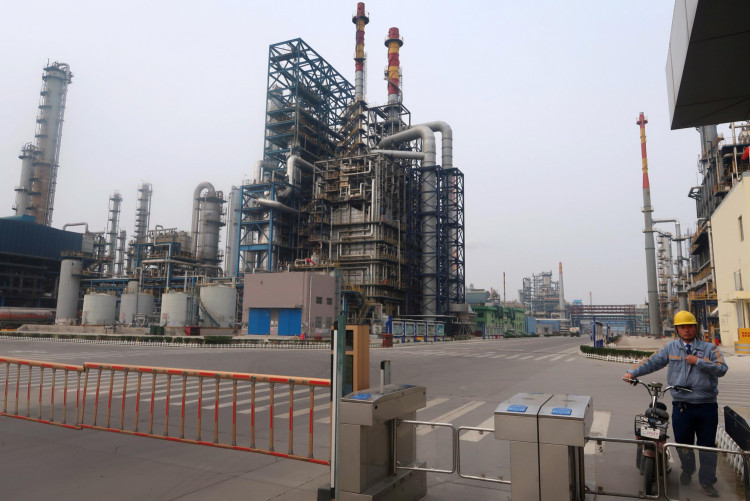Chinese petrochemical company Shandong Yuhuang Chemical has been downgraded by rating agency S&P Global as it is "almost certain" to default on two domestic bonds in the latest sign of financial distress in China's third largest province.
The long-term credit rating of Shandong Yuhuang was reduced to CC from CCC-plus and could fall further to D if the company fails to repay the principal and interest on an onshore bond due Thursday. The onshore liability has a grace period until next week, S&P Global disclosed in a Friday statement.
On Thursday, the firm halted onshore bond trade, worth 500 million yuan (US$ 71 million), claiming "a major event." This hit hard on the value of the foreign bonds of the firm.
Its $300 million dollar-denominated bond decreased by 2.6 percent to 62.38 cents in Hong Kong late Friday, after plunging 13 percent, marking its highest one-day fall.
Shandong Yuhuang's woes are reflective of pervasive liquidity pressure faced by the local private sector, a flagship of private companies headquartered in Heze city in Shandong, China's third largest province in terms of gross domestic product.
Over the years, companies in the region have created a complex cross-guarantee web, exacerbating the problem as one company's debt woes spread rapidly to the rest in a guarantee provider chain.
The cash on hand of Shandong Yuhuang is not sufficient to cover the two notes, the analysts reported, whose total value is 1 billion yuan.
Throughout January, the second debt will become "puttable," implying creditors are allowed to force the company to return the principal of the loan. Given the company's negative credit outlook, they are likely to exercise that right.
In its August interim report, the firm, which intends to double the ability of a US$ 1.85 billion methanol plant under development in the US, announced 241 million yuan of cash holdings. It also issued other companies with international loans of 199 million yuan, which could be used to repay their debts.
The inability of Shandong Yuhuang to settle its outstanding financial dues represented the funding problems that other private companies in Shandong encounter. Last month, Xiwang Group, a large steel and maize producer, failed to repay a 1 billion yuan domestic loan.
Shandong Ruyi Technology Group, a local clothing company, sold a 26 percent stake in October to a local government-backed investment firm which promised a loan as it struggled to cope with a mounting debt stack.
While increasing numbers of troubled private firms are receiving support from local governments, analysts have warned that such assistance may be restricted to companies that are critical to the regional economy or have the potential to move up in the value chain.






